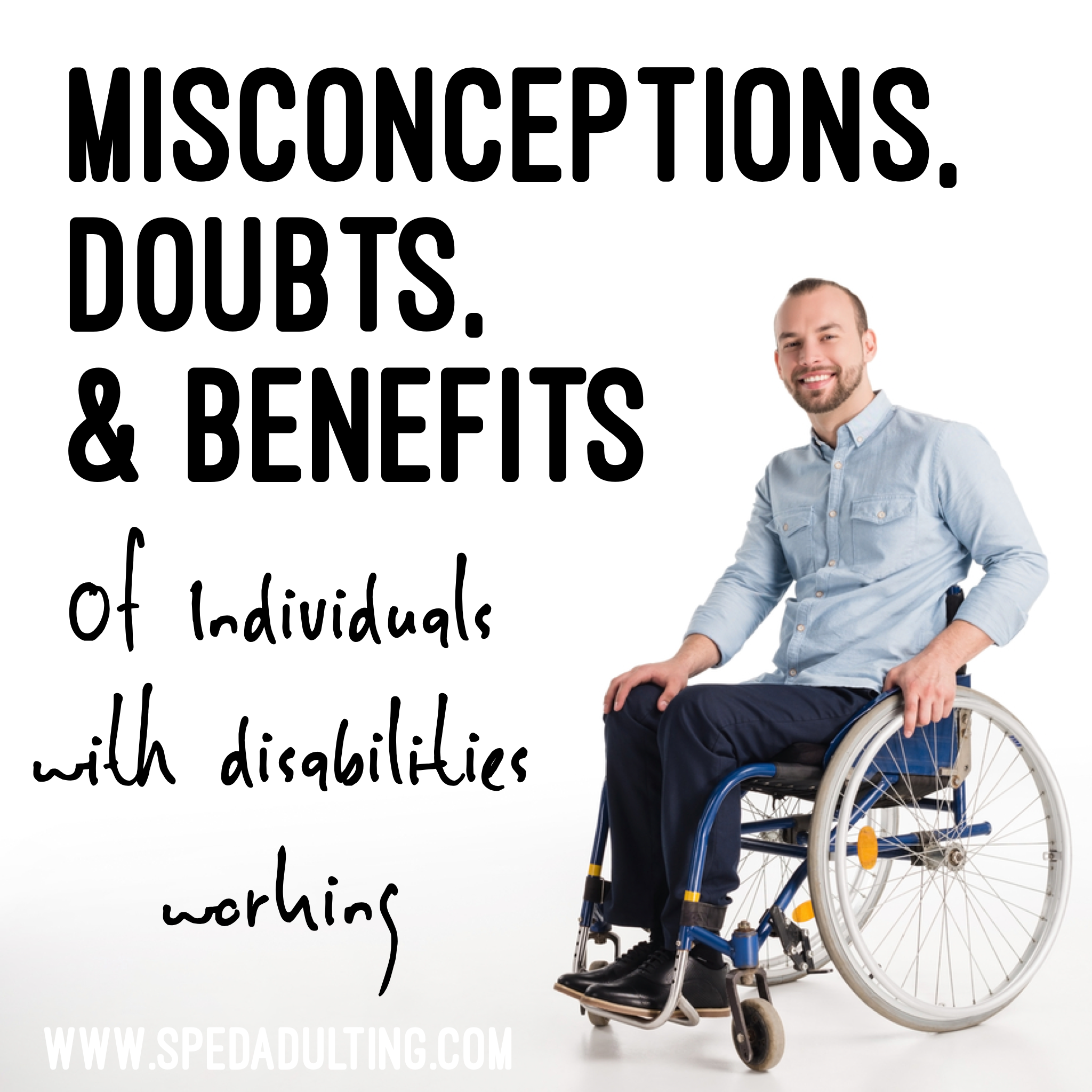When a person works, whether they are getting paid or not, there are many benefits – they might just need some patience, help, and support to get started!
BENEFITS
- Working is good for our health and wellbeing.
- It builds confidence and self-esteem.
- In some cases – it can be financially rewarding.
- It keeps us busy and positively challenged.
- Working allows for personal achievement which leads to pride.
- It gives us a sense of identity.
- It allows us to socialize.
- It improves mental and physical health.
- and work tasks are often valuable life skills.
DOUBTS & MISCONCEPTIONS
Now before you say anything, hear me out. The topic of students participating in vocational activities in the classroom or off-campus job experience can be a bit of a hot topic for some parents and teachers. While most parents are on board with their child participating in learning workplace skills, I’ve had a handful that do not see the point in it or value academics over vocational skills. Working isn’t for everyone, and that is fine. I just want to shed a little light for those that might want to work, but haven’t been given the chance or opportunity to try because someone else thinks they can’t or don’t want to.
Common responses I hear are:
- “Their disability won’t allow them to work.”
- “They will need full support for the rest of their lives because they have ID and physical limitations, they can’t work”
- “They are not going to find work.”
- “If they work, they will not qualify as being disabled anymore or they will lose their benefits.”
These misconceptions have created a roadblock, and possibly yet another limitation to some individuals.
Every individual has the capability of participating in a business, even if it’s as simple as pushing a button over and over. I think that it’s easy to misperceive what employment really is – it is a lot of work, requires a specific set of skills, requires little to no supervision, must have a lot of responsibility, and so on. This is true of a lot of jobs, but accommodations can be made, support can be given, and certain jobs/tasks can be restructured. It’s about including an individual where they fit and giving them the supports to be successful: whether that means having a flexible schedule, frequent breaks, or hand over hand assistance. I admit it’s not going to be an easy or smooth process, and it might take a lot of work and patience of a support person, but there are resources out there to help individuals make small to large contributions to the workforce and community.
ACCOMMODATIONS
To briefly disprove some of these misconceptions, check out the American’s With Disabilities Act (ADA) of 1990 and the types of rights individuals with disabilities are afforded. Reasonable accommodations in the workplace can allow individuals to effectively participate in the workplace. We are also currently seeing a huge push for competitive paid employment for individuals with disabilities. As far as qualifying for disability and benefits, it will depend on the disability, condition of the disability, as well as state the individual lives in to determine disability status while working. For more information check out the Social Security Benefits Planner.
For a comprehensive list of accommodation ideas by limitation or disability, check out: https://askjan.org/a-to-z.cfm
Here is a great article on Forbes: How Disability-Friendly Is Your Workplace? 4 Ways To Put Your Business To The Test
AD: This unit focuses on pre-vocational vocabulary and skills on workplace accommodations. Basic concepts about disability in the workplace, disclosure, and reasonable accommodations are covered through visual lecture, cut & paste, tracing, reading comprehension, writing sentences, functional worksheets, typing activities and more.
SUPPORT
For individuals that may be more severely impacted, vocationally focused adult day programs are also helping with the process of finding appropriate and individualized placements for their clients – whether it’s a full-time position or a volunteer opportunity. There are also many self-employed individuals with disabilities. Some may require the help of parents or guardians to run, but there have been many success stories out there that utilize an individual’s unique talents and strengths to center a specific job or product around.
The point is, there are many options out there, it is just a matter of taking the time to find the right resources, and focusing on an individual’s strengths – not their limitations. It’s about creating meaningful employment opportunities.
If an individual chooses they don’t want to work, that is their personal choice and no one can force them to do something they are not going to enjoy or put their determination to. The key thing we need to remember is that they need to be given this choice in the first place, no matter how highly impacted their disability is. I’m not here to spark any arguments or negativity, and I’m not trying to live in a false reality that everyone is going to work. Rather, I’m just here to advocate for those that don’t have a voice or who haven’t been given a chance because of the doubts or misconceptions currently out there.
You might like this simplified & visual survey:
Evidence of benefits of working taken from https://fitforwork.org/blog/benefits-of-working/







